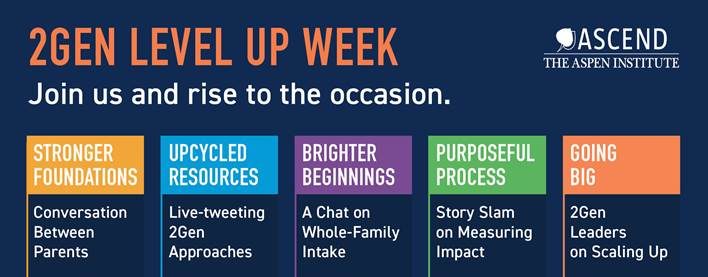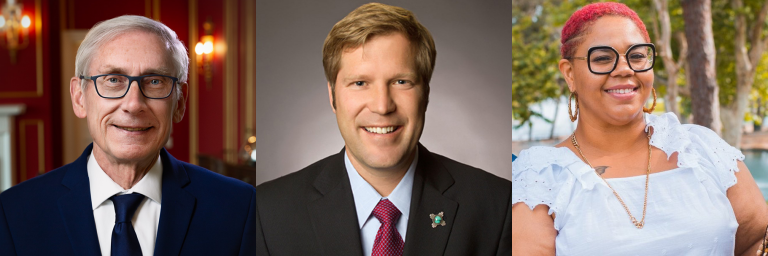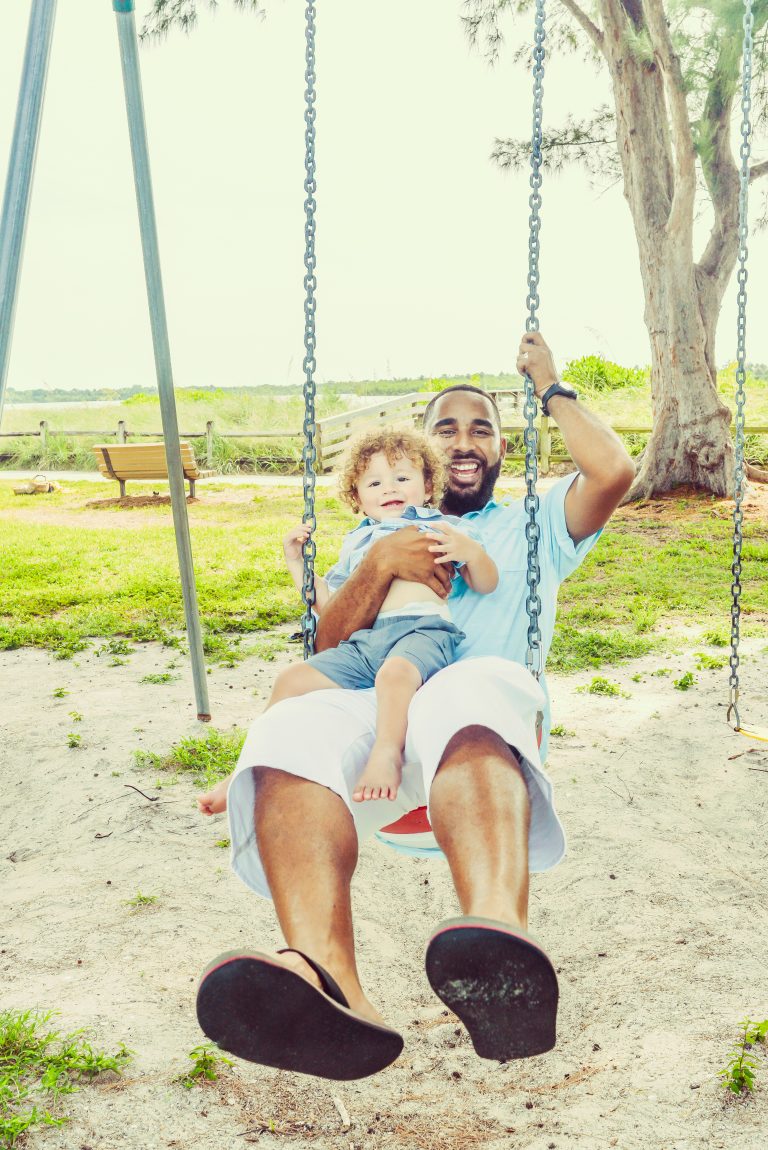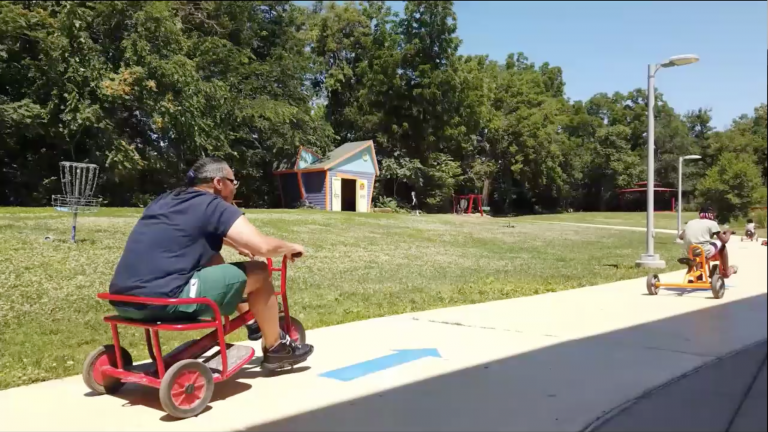2Gen COVID-19 Webinar Series: Building a Response for the Future
As we respond to the economic and health impacts of COVID-19, Ascend’s founding mission to build an intergenerational cycle of opportunity and family prosperity is more urgent than ever. This is a moment of profound disruption, but it is also a time for innovation. We at Ascend are redoubling our efforts to highlight 2Gen solutions that Ascend Fellows and the Ascend Network have developed over the past decade to help families reach their potential. We believe our collective work can guide communities to powerfully respond to the crisis and rebuild a stronger and more equitable future for children and parents together. In particular, we are examining and lifting up the ways this crisis has laid bare the profound inequities that lead to health disparities, as well as the ways in which the pandemic is disproportionately impacting the economy, education, and health of communities of color throughout the US..
We want to shine a light on how to make more permanent changes to improve outcomes for families. We invite you to the Ascend 2Gen COVID-19 Response Webinar Series, that will do just that.
This series will tap the insights, expertise and resources of the Ascend Network, the Ascend Fellows, parents, and our policy partners so that we all can become smarter on how best to assist families during this economic freefall. We will examine how new solutions, anchored in the 2Gen approach, can build and improve long term outcomes that stabilize the health, economic, and education of families as they seek to recover and move forward from the COVID-19 crisis.
Parents’ voices guide us as we think about actions we must take to meet the challenge of these times. In a blog post on The Hechinger Report, Ascend Parent Advisor Ariel Ventura-Lazo noted, “it’s time for new, innovative and actionable solutions – to help us weather the storm caused by the coronavirus, but also to help us thrive once this pandemic passes.”
Join us for the webinars below to learn more about what we can do today to build a stronger, equitable future for children and the adults in their lives. Please note that if you cannot make these times, please register and you will be sent a recording of the webinar, or you can find the recordings posted below.
Past Webinars
Telehealth and 2Gen: What are the Opportunities and Where are the Innovations: Telehealth has emerged as an essential resource for families during COVID-19. However, not all telehealth visits are covered equitably, and there are significant challenges and opportunities for telehealth practices and systems changes for children and parents. In this webinar, we will review the landscape of coverage for telehealth, hear from practitioners and parents on what’s working (and what’s not), and explore opportunities for embedding changes in how families are served remotely in the coming months and years. Watch this webinar here.
State Opportunities and Challenges in Advancing Child Care Innovation: While states are rapidly aligning resources to expand child care access for essential workers and support child care centers that are at risk of closure long-term, new innovations are emerging to support the early childhood field long-term in achieving better outcomes for whole families. In this time of crisis, how can we build on models – from family-based care to the role of museums to states’ bold new approaches – to embed 2Gen approaches in early childhood? Watch this webinar here.
New Frames for a New Time: The coronavirus pandemic has fundamentally shifted how we think and communicate about practices and policies for families with low incomes. How are we maximizing this moment of opportunity for flexibility and understanding of the impact of disparities on families, while managing the profound effects of the crisis right now? In this webinar, Frameworks Institute expert Julie Sweetland will share emerging and established research on messaging on economic mobility, COVID-19, and ways to support practice and policy goals in this unprecedented moment. Watch this webinar here.
Supporting Student Parent Families in a Time of Crisis: Students who are parents, often the most high-performing students, are facing heightened financial insecurity during the current economic downturn and an unprecedented spike in unemployment. As colleges, workforce development programs, service providers, policymakers, and advocates prepare relief and recovery measures, the unique needs of postsecondary students with children must be considered to ensure they are supported now and in the future. Watch this webinar here.
Implications and Useful Lessons around Child Support: The child support program touches more families for a longer period of time than almost any other social program in the United States, involving one in five children and both parents throughout childhood and beyond. When child support policies are not designed to prioritize child well-being, they can interact with family life in counterproductive ways. Decades of research suggests that there is a better way to approach child support policy to build strong families and communities. In this webinar, learn more about holistic, family-centered approaches to child support policy that put children and families where they belong: at the center. Watch this webinar here.
Parent Voice During COVID-19: Maintaining Feedback Loops: Parents and families are experts in their own lives and they are best positioned to give insight on their needs and challenges, as well as provide feedback to policymakers and service providers. Their voice is even more critical now as we are responding to the ever changing environment caused by the current pandemic. During this webinar, we will discuss ways to maintain and strengthen feedback loops that keep parent voice at the forefront of policy discussions and service delivery practices in this new world of social distancing and virtual programming. Watch this webinar here.
Stopping Behavioral Health and Substance Use Disorders Where They Start: Prevention and Treatment in Adolescence: Behavioral health concerns, such as anxiety and depression are common among adolescents, as is substance use. Half of all behavioral health problems begin by age 14 and youth from 12-20 years of age account for about one-tenth of all alcohol consumed in the United States, with crises such as COVID-19 only increasing challenges. In this peer-to-peer conversation, we will hear from national leaders about how they are innovating to prevent and intervene in adolescent behavioral health and/or substance use disorders. This is the fourth conversation in a four-part dialogue series to inspire visionary change in mental health promotion, prevention, and treatment for children and families in the Nation’s Capital. Watch this webinar here.
Related Posts















